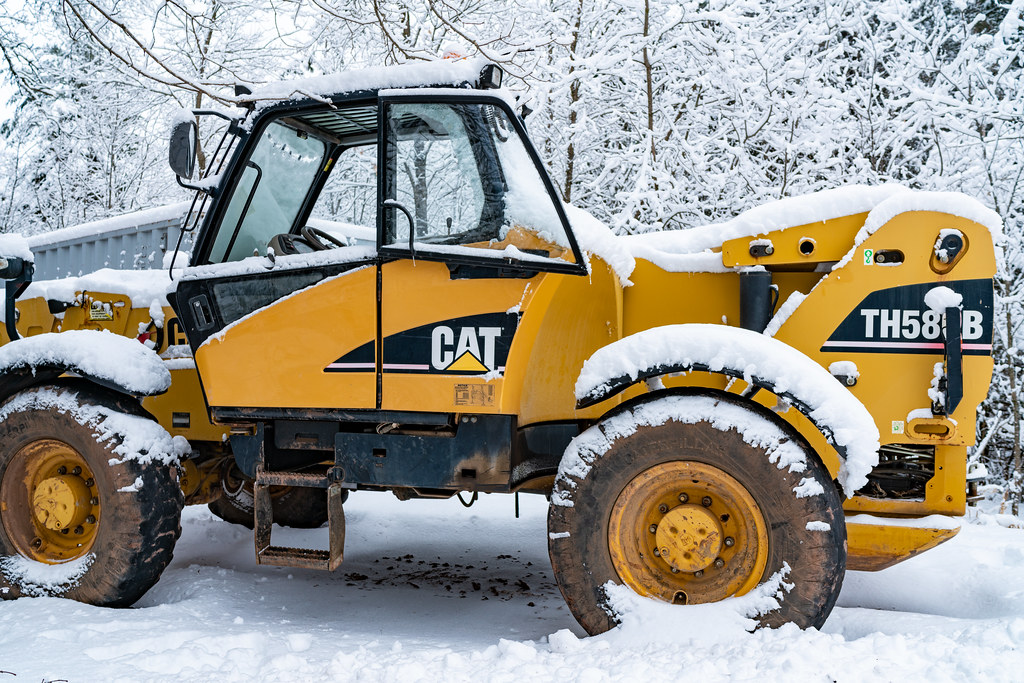Winter months when the weather often takes a turn for the worse can make operating material-handling solutions like forklifts challenging. To avoid accidents and harm to operators and forklifts, winter work training is always advised.
Operators without training and experience in using forklifts in ice, snow and freezing temperatures can experience seasonal issues that can affect the efficient and safe use of forklift trucks. The best way to make certain that business continues whatever the weather is to ensure that staff are attentive to changes in their operating environment and are well-trained to adapt their work processes accordingly.
Recognising winter safety hazards
The first step is always to make sure that operators identify risks associated with winter. These will include limited operator visibility, wet and often slippery conditions and cold weather like ice, hail, and snow.
All these hazards can be answered by ensuring that operators and forklift trucks are always properly protected and prepared.
Forklift operator protection
Handling materials in freezing and cold conditions can impact the concentration of even forklift operators with years of experience. It is the job of enterprises to ensure their operators are properly equipped to keep safe and warm so they can concentrate on the task at hand. As a result, operators should be provided with windproof coats and multiple layers of warm clothing, including gloves and hats to keep them protected from the elements, enabling them to work comfortably.
With visibility often restricted in winter weather, all clothing provided should be reflective and highly visible. Operators should also be encouraged to take regular breaks in a warm place away from the continuous physical and mental strain caused by the weather. When forklifts don’t have a cabin or screen, enterprises can consider upgrading their solutions with wipers, screens, and heaters.
Forklift truck protection
Getting forklifts ready for winter weather is just as important as preparing operators. Operators should be trained to cover forklifts when not in use to protect them from rain, snow, and wind. Forklifts should be fitted with pneumatic tyres instead of solid tyres for enhanced stability in poor conditions when possible. If this is not appropriate, operators should know to apply tyre chains or studs for extra grip on ice and snow.
Operators should ensure that outdoor work areas are effectively gritted if snow or frost is predicted before using forklifts and this level of gritting should be maintained to stop pedestrian workers and vehicles from slipping.
Safe forklift operation in winter
Before they start working, operators should be trained to check that their forklift is ready for winter. They must ensure lights are operating correctly and that tyres suited to the weather are in place.
They must check oil, de-icer and fuel levels are appropriate and understand the importance of allowing more time for the forklift truck to warm up before it can be used to ensure the hydraulic system and engine are both running at optimal performance.
In use, operators must be trained to remain extra vigilant. Severe weather can distract pedestrians and others working nearby. The rain and wind can also make them rush, and visibility and hearing are often restricted in harsh weather. Operators should remember to slow down, ensure they can always clearly see where they are driving and be watchful of slippery surfaces, distracted pedestrians, and other obstacles.
After use, forklifts must be cleaned, and any necessary maintenance carried out before they are covered.
For safe operation all year round, forklift driver training should be continually updated with additional sessions giving specific advice for a challenging season such as winter.


